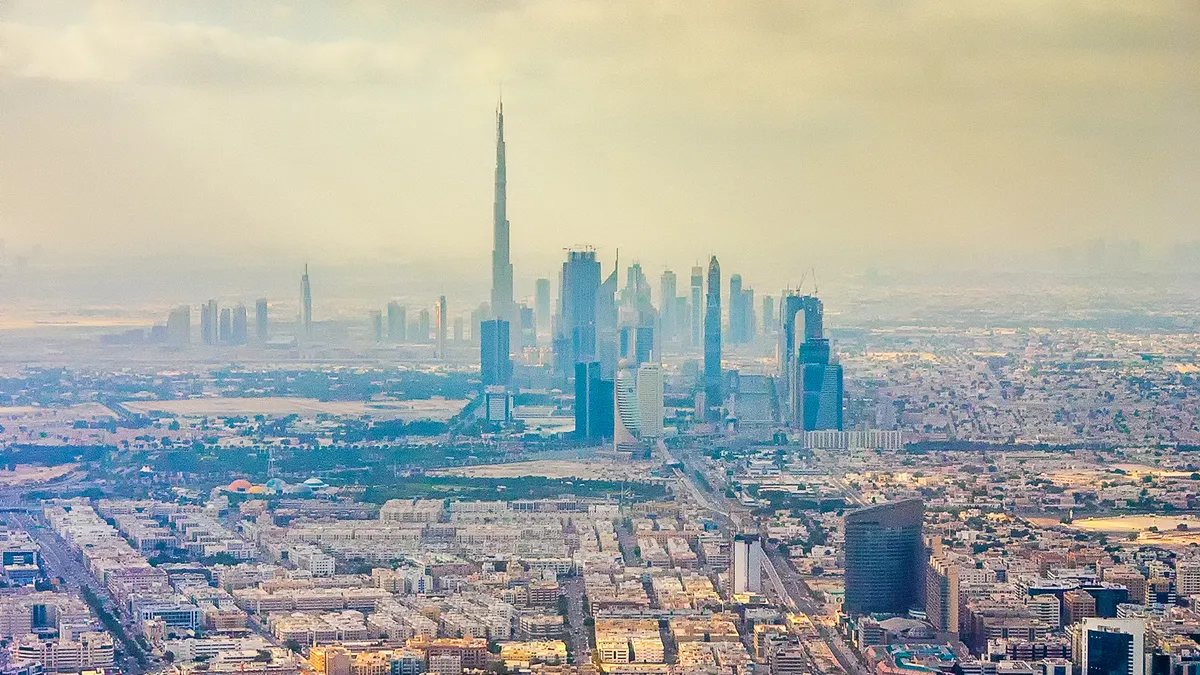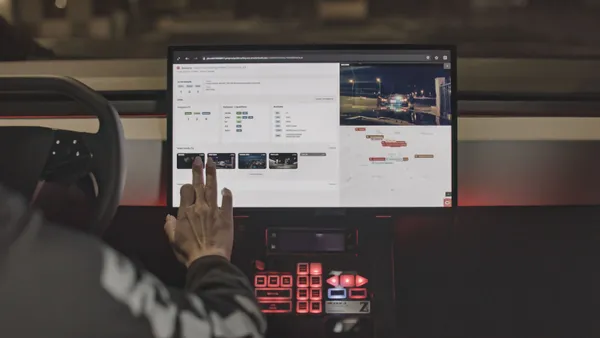Dive Brief:
- Next month, Dubai of the United Arab Emirates (UAE) will launch a pilot program that runs through November to test smart license plates on vehicles, according to Gulf News and BBC News.
- Traditional metal plates will be replaced with digital screens that have GPS, transmitters and a microprocessor chip. The system will allow vehicles to connect and exchange information with each other and authorities.
- The digital plate will be connected to a driver's record so the person can pay fines and parking fees or renew their registration via the connected system.
Dive Insight:
Dubai has been pushing pilots for dozens of innovations as it competes for recognition as one of the world's most technologically advanced smart cities. It has set ambitious objectives and goals in its Smart Dubai plan and frequently launches new programs to keep with the goals. The city requires all new construction to be at least 25% 3-D printed by 2025 and aims to be one of the first cities with a Hyperloop, and has tested a slew of other IoT technologies.
The digital license plates provide the potential for greater conveniences for drivers, such as the ability to remotely renew registration or pay parking fees. Their connectivity also could communicate road and traffic conditions with other drivers, allowing for real-time route adjustments. The city's Roads and Transport Authority (RTA) says the plates also will be able to automatically alert and dispatch police and other emergency service providers when a vehicle is involved in a crash.
While the technology will increase driver convenience, it also raises privacy and security concerns. The digital plates' constant data feed to the RTA and authorities, along with the connection to a driver's personal records, raises questions about how closely the government is tracking citizens. Plus, RTA indicates they will be able to change license plate numbers remotely instead of having to print and mail new plates. That and the other connectivity elements could open the system up to hackers who want to change plate numbers or gather drivers' personal information.
RTA expects to better understand the technology, its obstacles and costs after the trial ends late this year. The pilot period also will be used for working out any possible challenges Dubai's desert climate will present for the technology.











